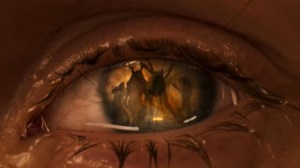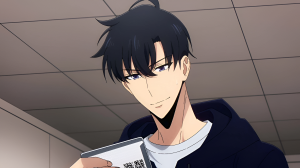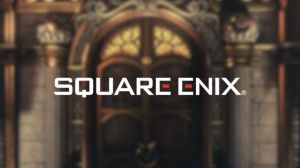The Gifted is back for a new season on FOX, and the world of Marvel’s mutants is larger than ever.
Videos by ComicBook.com
As the new season begins, the Mutant Underground and the Inner Circle are both pursuing their own visions for what’s best for mutants.
During a visit to the show’s set in Atlanta, ComicBook.com spoke to executive producer Derek Hoffman about how the show has grown in its second season.
What would you say is the biggest difference between the first and second season of The Gifted?
Derek Hoffman: Actually, the biggest difference between seasons is, we’re actually starting all over with the destruction of the Atlanta station and moving out of Atlanta, figuratively, not literally. It was a real big challenge and decision and opportunity in this season to sort of fill out our visual style and to open it up and to explore the world a little more. We wanted to help tell the story visually and really add layers to the things since what the writers are doing is such a closely woven and thematically nuanced idea that we’re trying to bring as much of that to the screen visually as we can.
Exposition is not always your friend, so I think building out “What is the Inner Circle? How do they relate to the world? What is Reeva’s plan and true intentions?” are the overarching story. Giving each of the characters that we had met last season some real life and some real authenticity. I wanted you to be able to walk into a room and sort of be able to tell whose room it was. And if there was a couple, whose room was it first? And sort of see those layers of the other person’s stuff moved in, and how identity changes over that time and stuff. When you meet a group like the Morlocks, to be able to get a sense of how they live and what’s important to them and things like that. So, I think the biggest challenge was where you wanted to hit the ground running and build off of last season. We were really sort of re-piloting in a certain way.
Thematic Growth
With the world becoming so much larger this season, how does that affect themes of the series? I know “family” was a big theme in the first season. Is that still the case?
DH: It’s definitely the case because I think that’s a part of what our show’s about. That is one of the things that it always comes down to. And I think this time we explore a little more of how your family influenced the person that you are now, for both good or bad. Like, the strength of your foundation, or the relative weakness of it. How did that influence the decisions that you make? You always come back to family, because I think that that’s what everybody does. But also the size of the world gives us the opportunity to explore more themes, and thematically put our characters in more positions where they have to really question the opinions I thought they have.
The Mutant Underground vs. the Inner Circle

The split in the Mutant Underground and the emergence of the Inner Circle has created a dynamic that feels similar to the one between the X-Men and the Brotherhood of Evil Mutants in the comics and movies. Was that where you were always going, or is there something else you’re trying to create there?
DH: I will just say that on the surface, yes, it feels that way. I’m not sure that you can over totally get away from that, but we’re not having the same argument that Charles [Xavier, Professor X] and Eric [Lensherr, Magneto] had. It’s kind of an exploration of, if you have those ideas, what do you do with them? So, it’s much more about putting into practice those things, and what does that actually look like in sort of the real world? In a lot of those instances people’s beliefs may come off as one thing, but when you get to know the person, you realize that they explore them in a much different way than you thought. I love playing that idea of, “I thought we saw the world the same way, and we said a lot of the same things, but we see the world actually rather different.” We play with that a lot.
Mutant Homeland
Last season felt very much like it was drawing from the “Days of Future Past Storyline.” It was very much an original take, but there clear nods and references. This season, the idea of a mutant nation is being floated around in the new, which is something the comics have done with Genosha and Utopia. Are you looking at any of those stories specifically as inspiration?
DH: Yes, and no. In that similar way, everything we’ve tried to do is take less storylines and more touchstones that you’re familiar with in the comics, and cycle them through our filter and make them our own. I think that inherently, the things that you’re probably drawn to in an X-Men comic, if your tastes are in line with most of the fans, they became a big thing, and they probably went on to be something of a scale in which we’re not going to be able to do on a television show, and in a scale that takes them away from our characters.
Our characters exist in a very real world. So, what the writers have done a great job of, what we tried to explore here in production is trying to take those things and go, “Oh, I get it. That’s kind of like this,” or “That’s kind of like that version this,” And just having a taste of it, and not in an Easter egg sense, but being able to say, “Oh, that’s their version of…” Like a mutant homeland. Because it’s so much more of an idea. It’s not Genosha, it’s not Utopia, but it’s that same idea. And again, what we try to play with is that idea of what would that actually look like?
You could say you want that. You could say you want time travel. You could say you want…we’re not going to do space, but you could do space. Any of those things, and then it’s our challenge to say, “Well, what would that look like in the world of the Struckers?” And bring it down to that level of how would this family interact with that?
Making it The Gifted’s

DH: We’ve created enough new things that we try to create new things that we put into juxtaposition with the familiar. Were you the one that mentioned when we were in the Inner Circle training room that it looked a lot like the Danger Room?
Yes
DH: That’s a good example. The reason to have that room is to show that the Inner Circle has unlimited funds and they don’t care how many of those things they have to make. And so, it has a different purpose instead of just feeling like this is a room where anything can happen. It was more to help tell the story that these people have every opportunity in front of them, and meanwhile Thunderbird’s training in a scrap yard lifting car parts. So, it was more about the philosophical juxtaposition. But it is something that inherently a lot of the audience can do a little bit of the legwork, so that we don’t have to explain a lot. And that’s kudos to our production team has done a great job with that.
Not a Comic Book Show
You’ve said that you don’t really think of The Gifted as a comic book show. What do you think it is that sets The Gifted apart from other superhero shows, such as the ones on The CW? Does it come with dealing with the X-Men, which have frequently lived in their own corner of the Marvel universe even in the comics?
DH: I think inherently one of the smartest decisions, especially in franchise filmmaking, was opening the original X-Men in Auschwitz. That put it in a world and gave it stakes, and made it about something a little more. And what we have tried to do, every director that comes through I have a meeting with them and I talk to them about the fact that we don’t view them as superpowers and they’re not magic powers. It’s a biological evolution. Each one of these people has something in their body that creates a gland or an organ that makes an endocrine and makes a whatever that biologically then they can do something.
And there’s a connection, and we work with the actors so that when Polaris picks up something out of metal she can feel the other thing and the weight of it changes. And Jamie [Chung], the exertion that it takes her to make Blink’s portals and go through and everything. We really tried to hammer out that they’re not much different than you and I, and that hopefully, their experiences are relatable to the audience, that they’ll go through things that are relatable to the audience. And by doing that it’s all about the metaphor for the characters and making sure that the audience is invested in the relationship between the characters. I love the Strucker family. I feel very bad for what we put them through. I enjoy it very much, but we try to put them through the wringer, and see what they’re made of and pull them apart and put them back together and really put the characters through the wringer.
And listen, I love the CW shows. I love that Legends [of Tomorrow] is as whacked out as it is, and although it was a little disconcerting at first, I loved that Arrow has done a lot of the stuff I wanted to see from a Batman world in the Arrow-verse. I think there’s a place for that. They do that really well. So, when we talked about even venturing with both Legion and this, it was the idea of, “We need to tell our own stories, and we need to choose something to focus on.” And ours was to not focus on the superhero but to focus on the people.
The Fox-Disney Merger

Has the upcoming merger of Fox with Disney had any effect on your outlook or the outlook of your team?
DH: No, because nobody at those companies can really talk about those things. I will just say that having made movies for Fox forever, but then having worked with Fox TV on these shows, and then working with Marvel on them, they’ve been fantastic partners on this show and on Legion. Both of those sides worked together extremely well, and both brought to bear different things. We couldn’t be happier with the partner. So, the fact that two partners that we really like are merging together, I’m super happy.
Longshot Characters
Last question. What is the character that you’d most like to play with in The Gifted but can’t? Not necessarily for contractual or movie reasons, but maybe because they just don’t fit that tone you were talking about or the realities of making television just make them impractical.
DH: Oh, man. I think Longshot because his surrounding characters are so crazy. He and Nightcrawler. I guess I like swashbucklers, and I like that idea of them bounding about and playing in this world. But, yeah, I think Longshot and Nightcrawler would be two of my faves.
*********************
The Gifted airs Tuesdays at 8 p.m. ET on FOX.








